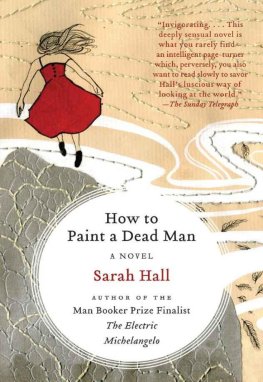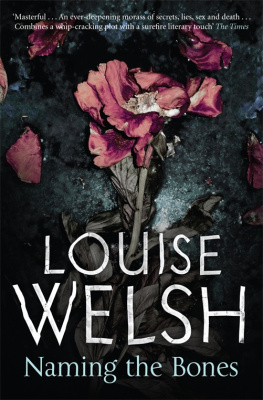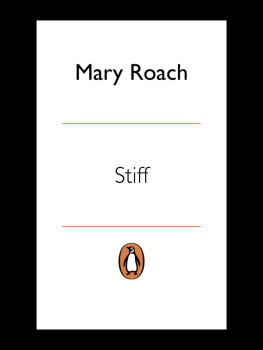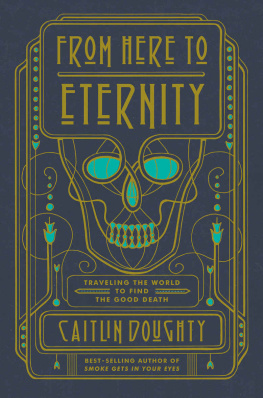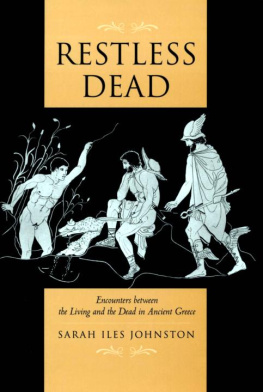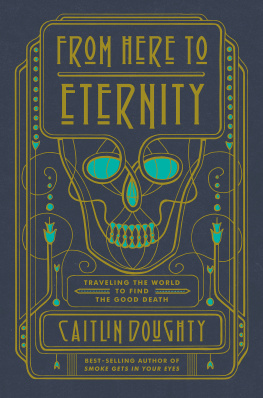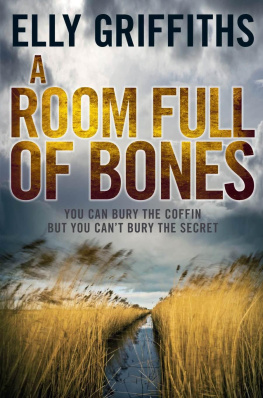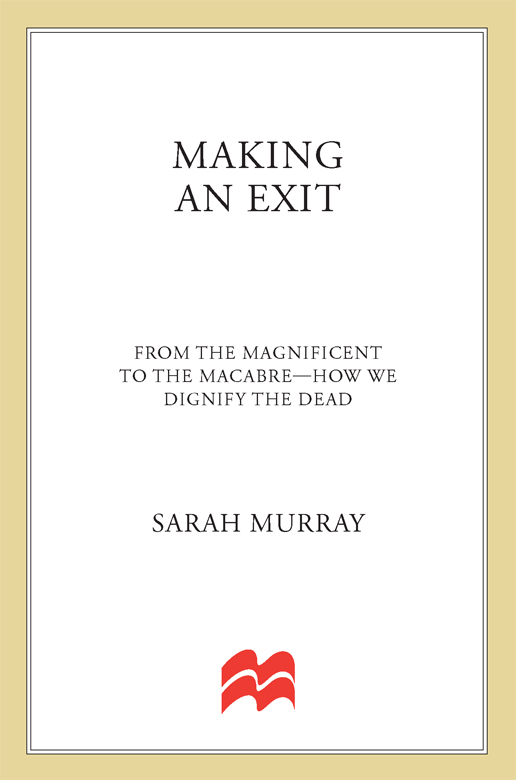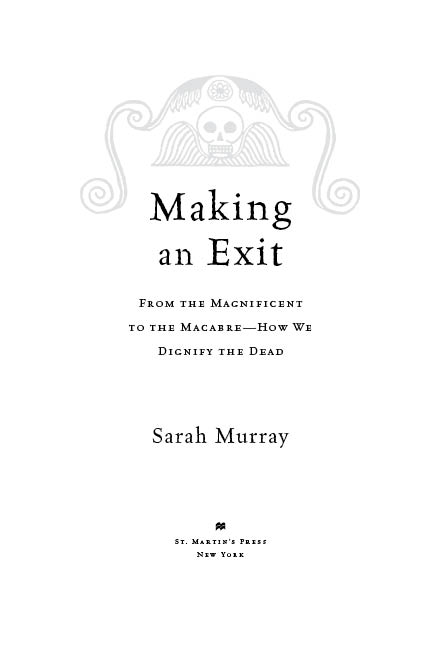
For Fa
Contents
READY TO GO
Weary of plying,
Exhausted by trying,
Irked by spying,
And well meaning prying,
Accused of lying,
No money for buying,
Cant see for untying,
No longer denying,
No tears for crying,
A fear of dying
But a
Longing for dying.
N IGEL S TUART M URRAY
( DATE UNKNOWN )
Introduction
The trouble with death is what comes before it. I struggle to replenish my memory bank with images of my father, not as he was in illnesstired, shrunken, and graybut as he was in health. He was at his happiest out and about in the countryside, in brown corduroys, rubber boots, a green padded jacket, and a tweed hat. With eyes twinkling beneath unruly brows, he was always ready for a good walk, a good debateand usually a good laugh.
We called him Fa. Neither of my parents wanted to be known by Mum or Mummy, Dad or Daddy. But somehow while my mother, Sam, acquired a rough-and-ready boys name as her substitute (her actual name is Pamela), my father settled on a rather fey alternativesomething I had to keep quiet at school, where my classmates competed on the ferocity of their rows with the old man. To fit in, I played along, but the truth is, Fa and I got along like familiar friends, enjoying debates on politics, economics, and art, battling it out on turf that was intellectual, not emotional.
Fas approach to family relationships was unconventional. He thought the idea of raising children in a kibbutz (a Jewish collective community) an excellent one. And while he and my mother fell in love at first sight and remained devoted throughout their marriage, they never once celebrated their wedding anniversary, claiming neither could remember the exact date (they celebrated a relationship requiring no formal buttressing). For Fa, close bonds with friends and family were essential, but only those forged by genuine affection, not by obligation or tradition. Even Christmas was a casual affair, sometimes spent not at home but in London, with my parents turning up bearing a picnic hamper of smoked salmon, a selection of cheeses, and a bottle of wine.
Few events caused my family to flap or panic. One afternoon during Fas time at the Joseph Weld Hospice, word came that Prince Charles was to visit and wanted to meet a patient. The nurses immediately chose my father, and in excited tones, told Sam, who was lunching at the hospice, that she, too, could meet the heir apparent. Sam, as she told me later without a hint of irony, asked what time he was arriving, looked at her watch and said: Oh no, Id better notIve got to be getting on. And hell only be late.
My familys no-nonsense approach to life was one my father applied to death. He dismissed the idea that what was left after a person took their last breath had any significance. Organic matter, he called it. After my grandmother died, he insisted that her body was simply flesh, skin, and bones, with no connection to the person who once inhabited them. That person was gone. He even managed to get a refund from the undertakers, whod mistakenly sent her off in a silk-lined wooden coffin with an engraved plate on it bearing her name, despite his request for what shed wanteda simple cardboard box.
On another occasion, he stood in the kitchen, cheerily claiming hed be happy if, after his death, the hospital would simply dispatch his remains in the most efficient, hygienic way possible. That would be that.
Yet for Fa, that wasnt quite that. He was to make other arrangements altogether. And its these arrangements, set down on paper a few months before he died, that have got me asking questionsquestions about the way we humans mark the passing of our fellows; questions about how we approach our own mortality. This book is an attempt to answer some of them.
* * *
While it plunges us into chaos and grief, death also forces us to plow through piles of paperwork and fill in dreary forms. We close bank accounts and cancel insurance policies. We make special trips to hospitals, nursing homes, and hospices to collect half-read books, unwanted glasses, and sad sets of pajamas (we come away without their owners). We arrange family parties, make speeches, and pass around cocktail sandwiches and sausages on sticks.
Initially, Sam and I were spared much of this activity. After my flight from New York, I arrived at Summerfields, my parents home (now just my mothers home) the day after my father died. It was Christmas afternoon. England was shut for the holidays. Shops were closed, offices empty. Not a bus or train was running (I managed to borrow a friends car to get home from London). The countrys seasonal shutdown seemed for once appropriate. Stop all the clocks, cut off the telephone, wrote W. H. Auden. He Is Dead. A life has stopped in its tracks and so should we.
So my mother and I ambled quietly around the house, assessing what needed to be done. It was a strangely happy time we spent together. Neither of us discussed it, but we both felt a tremendous sense of reliefrelief that my fathers painful battle with cancer was at last over.
Soon after I arrived, Sam handed me a brown envelope on which in Fas spindly handwriting was written the words: To be opened after my death. Inside was a document hed typed up six months earlier on his computer in The Hut, the converted garden shed that housed his much-loved office.
Actually, The Hut was much more than his office. It was his home at home. In it, he had his 1970s stereo system (But the sound is superb, he protested whenever we suggested something more modern) and the Remington typewriter he reluctantly relinquished in favor of a secondhand computer. The shelves in The Hut were full of clues about his lifesmall model boats, giant industrial bolts, tape measures, set squares, boxes of fishing flies. On the walls were framed photosFa as a small boy in shorts in the annual school picture; his late brother Gavin, a military officer, standing in line with his regiment, the Fifth Royal Inniskilling Dragoon Guards.
It was in The Hut that my father loved to spend time writing letters and essays, listening to jazz, and compiling photo albums and scrapbooks. And it was in The Hut that, with his death approaching, he composed the letter I was about to read.
* * *
The text of Fas document starts ominously with: To Whom It Will Concern. Yet in each sentence, the gravitas of his legal terminology is interrupted by lighthearted phrases or exclamation marks that betray his sense of fun and desire to dismantle convention. Rereading this letter, as I sometimes do, I hear his voice in every line: serious and authoritative, matter of fact, yet ready to enjoy the amusing side of any situationeven his own death.
Following cremation I would like my ashes to be scattered in the churchyard of North Poorton Church, he tells us. Subject to any prior approvals necessary, the scattering requires no formalities, or ceremonial baggage attached to the act of scattering! A local undertaker should arrange for the cremation and delivery of the ashes, he continues, without supplying any expensive coffin. No oak coffin with brass gilt handles should be necessary; no brass casket to contain the ashes is needed; a cardboard box, or polythene bag will suffice. (Remembering his request for a refund for my grandmothers mistakenly ordered coffin, this bit certainly makes sense.)
He includes practical considerations: The weather needs to be calm, with no more than light winds. This sentence always makes me smilebecause I know he means it. As an agricultural surveyor who advised farmers on business and legal matters, Fa liked things done properly. His letters, while sometimes philosophical and always affectionate, included instructions for things like keeping wet out of old windows. In one, he worries about my sister Kates tricky problem with her flat roof. In another, hes interested to hear that his brother Alastairs water supply has a consistent overflow running at the springhead. A note I found from Country Landowner magazine thanked him for his fascinating piece about drainage. Preoccupied with the practical throughout his life, he wants to make sure we dont make a nonsense, as he wouldve put it, of the practical side of his death.


